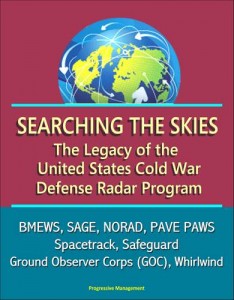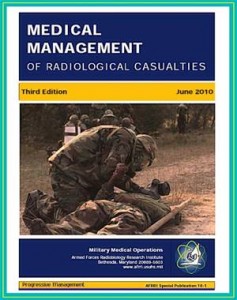Eight official U.S. government and military documents provide insights into the American strategy for dealing with the increasingly ice-free Arctic: National Strategy for the Arctic Region (Obama White House), Implementation Plan for the National Strategy for the Arctic Region, Department of Defense Arctic Strategy, NOAAs Arctic Action Plan, United States Coast Guard Arctic Strategy, Implementation of U.S. Policy in the Arctic, Marine Corps Equities in the Arctic, and Assessing the Resource Gap in a Changing Arctic.The Arctic is at a crucial point in its transformation from a relatively isolated region to one where receding ice is enabling increased human access. As climate change and the viability of new energy sources shape the global environment, these shifts will affect our strategic outlook going forward, especially in the Arctic. The United States is committed to working with allies and partners to keep the region stable and secure through this historic change. This Strategy articulates the balanced and collaborative approach that the Department of Defense will take as it prepares for changes in Arctic operating conditions, and potential changes in the future security environment due to the increased access and activity in the region. The Arctic is becoming more important, and regardless of the rate and scale of change, we must be ready to contribute to national efforts in pursuit of strategic objectives in the region.Through the National Strategy for the Arctic Region, we articulate our strategic priorities to position the United States to meet the challenges and opportunities that lie ahead. We will seek to prioritize and effectively integrate the work of Federal departments and agencies with activities that are already underway in the State of Alaska and at the international level. And we will partner with the State of Alaska and Alaska Natives, as well as the international community and the private sector, to develop innovative solutions and new ways of operating. The Arctic is changing. We must proceed, cognizant of what we must do now, and consistent with our principles and goals for the future.Security in the Arctic encompasses a broad spectrum of activities, ranging from resource extraction and trade to activities supporting safe commercial and scientific operations to national defense. Security cooperation activities and other military-to-military forms of engagement establish, shape, and maintain international relations and the partnerships necessary to meet security challenges and reduce the potential for friction. The Department will continue to build cooperative strategic partnerships that promote innovative, affordable security solutions, and burden-sharing in the Arctic, and seek to increase opportunities with Arctic partners to enhance regional expertise and cold-weather operational experience. The Department will continue to train and operate routinely in the region4 as it monitors the changing environment, revisiting assessments and taking appropriate action as conditions change.
American arctic policy and plans: obama national
Sobre
Talvez você seja redirecionado para outro site











